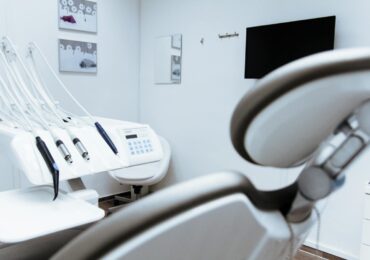Key Takeaways
- Understand the common causes and scenarios of dental emergencies.
- Learn why immediate attention is crucial for dental trauma.
- Discover steps to take when a dental emergency occurs.
Recognizing a Dental Emergency
Dental emergencies can emerge unexpectedly, often causing immediate discomfort and stress for those affected. Recognizing the signs of these emergencies is crucial in ensuring timely and effective treatment. Severe toothaches and acute oral pain usually indicate an urgent problem, while injuries resulting from physical impact, like knocked-out or fractured teeth, require swift intervention. In such cases, emergency dentistry becomes vital in addressing the immediate pain and preventing further complications.

In contrast, some dental issues, such as minor chips or mild, persistent discomfort, may appear less urgent but still require attention. While not emergency-level, these conditions shouldn’t be ignored, as they may lead to more significant problems if left untreated. Differentiating between what constitutes an emergency and what doesn’t helps make informed decisions about when to seek professional dental care.
Common Causes of Dental Emergencies
Accidents, often during sports or due to unexpected falls, are a prevalent cause of dental emergencies. Such incidents can result in sudden trauma to the mouth, leading to broken or dislodged teeth, which require immediate care to preserve oral health. In addition, conditions exacerbated by poor oral hygiene contribute to emergencies, as untreated cavities and gum disease can escalate into severe pain or infections. A proactive approach in dental care can help mitigate these risks.
Lifestyle choices, including dietary habits and regular dental hygiene practices, are significant contributors. Consuming excessive sugary foods or neglecting daily brushing and flossing can accelerate tooth decay and gum disease, heightening the possibility of dental emergencies. Awareness of these risk factors is essential for maintaining oral health and avoiding crises.
Why Prompt Response Matters
The significance of an immediate response to dental emergencies cannot be overstated, as it often determines the outcome of treatment efforts. Rapid action is crucial in preserving affected teeth and preventing further damage. The American Dental Association underscores the importance of acting swiftly to reduce recovery times and alleviate pain effectively. Prompt care addresses the immediate issue and prevents it from escalating into more severe health concerns.
Moreover, dental emergencies treated promptly often result in more favorable outcomes. For instance, a tooth reinserted into its socket soon after being knocked out is more likely to survive than one left untreated. This underlines the necessity of recognizing these emergencies and seeking professional help without delay.
Immediate Steps to Take During a Dental Emergency
When faced with a dental emergency, prioritizing calmness and clarity of thought can significantly aid crisis management. Keeping the tooth wet is recommended for lost teeth—putting it back into the socket can be optimal, but keeping it in milk or a tooth preservation solution is advised if that isn’t possible. For severe pain or swelling, a cold compress can assist in managing discomfort until professional care is available.
It’s essential to have access to emergency dental contact information. A quick call or visit to a dental professional can provide immediate relief and further instructions tailored to the specific emergency. Remember, contacting a dentist and verifying the need for immediate attention in uncertain situations is always safer.
Long-term Consequences of Ignoring Dental Emergencies
Overlooking dental emergencies can lead to far-reaching consequences that stretch beyond oral health. Untreated dental conditions may develop into serious infections that could affect overall health. The Mayo Clinic highlights the systemic risks associated with neglected dental issues, ranging from cardiovascular complications to diabetes management challenges. Addressing dental problems effectively mitigates these broader health risks.
In oral health, neglect often results in irreversible damage, translating to more invasive or expensive interventions later. This reinforces the need for immediate attention and routine preventive care, highlighting the critical nature of managing dental health proactively.
Role of Preventive Care in Avoiding Emergencies
Incorporating preventative measures presents an invaluable strategy for averting dental emergencies. Regular dental examinations and professional cleanings allow one to detect potential issues before they develop into emergencies. Dentists can recognize cavities, gum disease, and other problems that may be overlooked during daily hygiene routines. Furthermore, promoting healthy dental practices, like careful brushing two times a day and utilizing floss or interdental cleaners, dramatically reduces the likelihood of emergencies. For athletes, using mouthguards is a protective measure against physical impacts during sports, demonstrating the benefits of simple preventative steps in maintaining oral health.
Frequently Asked Questions About Dental Emergencies
Common questions about dental emergencies often revolve around pain management, the necessity of immediate professional care, or preventive strategies. Can cold compresses help with a severe toothache? Should you rinse your mouth with warm salt water during an infection? And, importantly, which dental issues demand urgent attention? Having succinct answers to these inquiries ensures informed and effective action, minimizing the impact of unexpected emergencies.
Tailored advice from dental professionals can clarify these questions, offering peace of mind and reinforcing the importance of maintaining communication with your dentist.
Conclusion and Final Thoughts
Dental emergencies underscore the unpredictable nature of oral health challenges. However, their impact can be minimized through informed recognition and prompt action. Prioritizing preventative care ensures a proactive approach to dental health, reducing the likelihood of emergencies and fortifying overall well-being. As you navigate your dental health journey, remain prepared for unexpected events and commit to a healthy and lasting smile.